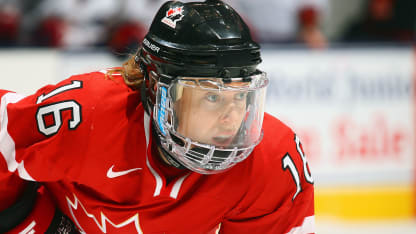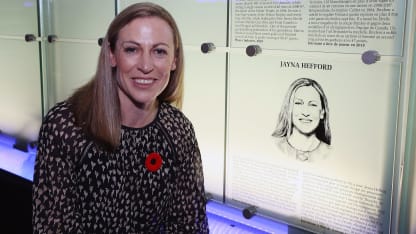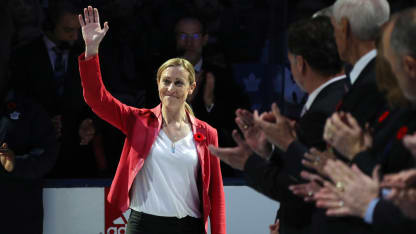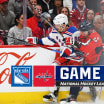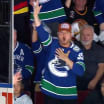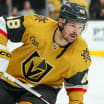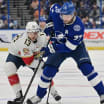As Hefford's game changed, so did her stature with the team. Hefford admits she was never a vocal player, but that didn't matter. She had made her impact with her play and was Canada's associate captain for the 2010 and 2014 Olympic teams.
"When you're going through history like that and playing on so many different teams, leaders can be made up of so many different things," former Canada forward Lori DuPuis said. "She was the first one to say, 'if I'm not having a good game, I'm not having a good game.' It wasn't, 'I should be on the ice.' That spoke volumes to the other players. It was by example. Other players didn't always understand consistency was key, but you could always look to her and be motivated by that. You knew what to expect from her every single game. And when she did speak in the dressing room, it was probably not out of frustration but more of a motivator to say, 'listen, guys, we can do this.' It really uplifted the team to go out and do something special."
Chicago Blackhawks assistant coach Kevin Dineen, who coached Canada's 2014 women's team, said Hefford's leadership was a huge asset. He also called Hefford, "a Marian Hossa-type player," comparing her to the right wing who won the Stanley Cup with the Blackhawks in 2010, 2013 and 2015.
"In that [2014] tournament, she was first over the boards on the penalty kill. On the power play, she was there. She could play high-end minutes and was a real cerebral player. That's why I say a [Hossa] comparison," Dineen said. "She was always a big part of the outcome of the game. She was all character."
Hefford's impact on the game continues. She's the interim general manager for the Canadian Women's Hockey League and she and DuPuis have operated their girls hockey school in Kingston, Ontario, since 1998. The school steadily grew in popularity, with more than 100 girls at some camps.
"When you can go onto the ice with someone like Jayna Hefford, and you can put your hand on medals and listen to her stories and hear what she went through and how she went through the process of making the Olympic team, it really makes people think, we can do it too," DuPuis said. "We all looked up to NHL players, but it's really impossible to be that. To see you have role models now that are playing on the Olympic team, playing in the CWHL, it's really something for young girls to look up to."
